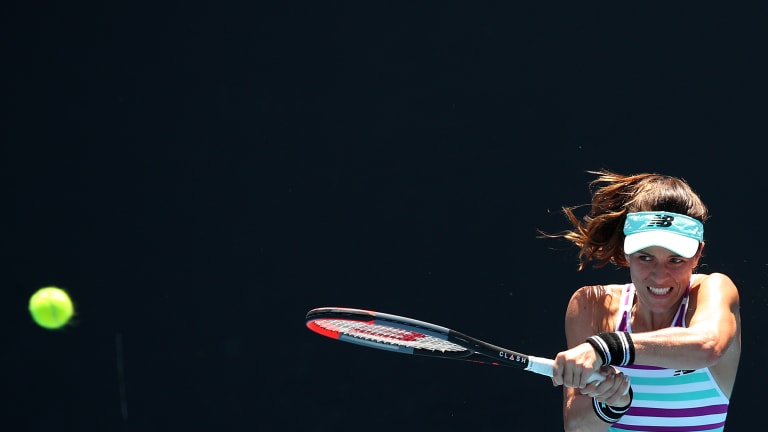Former WTA pro Nicole Gibbs has a lot on her mind this June morning—a brain zigzagging seamlessly across topics that range from her neighborhood’s homeless population to politics to meditation to surfing to grappling with the meaning of tennis. Consider the 29-year-old Gibbs smack in the middle of the decompression period that accompanies life after pro tennis.
As Gibbs speaks, she’s sitting at a café in Venice, a Los Angeles neighborhood that’s long had a bohemian flavor to it. Gibbs lives in Venice with her husband, Jack Brody, and two-month-old daughter, Sky. Describing life as a parent, Gibbs says, “This is the most cosmic shift in my life ever. I did not know I ever wanted to be a mom. But now that I am, everything else feels stupid.”
Gibbs retired just over two years ago, in March 2020. “The first six months off the tour were extremely hard—a complete identity loss,” says Gibbs. Part of that time was spent completing her senior year at Stanford, the school she’d left in 2013 after winning her second consecutive NCAA singles championship. “It was great just being a student,” she says.
When it comes to sports, Gibbs estimates that since retiring, she’s held a racquet three times, instead preferring to surf. “It’s everything tennis isn’t,” she says, citing the connection to nature, spirituality and the lack of a crowd watching her every move.
Ranked as high as No. 68 in 2016, Gibbs’ tennis odyssey was a constant shuttle back-and-forth between WTA main draw events, the grind of qualifying to get into many of them, and the quest to earn more computer points at ITF tournaments. Gibbs recalls the juxtaposition of the bright sunshine and joy of Grand Slam competition at the Australian Open and then, in the dead of winter, heading to Midland, Michigan to play an ITF event—and losing in the first round. “That was a reality check,” she says.
